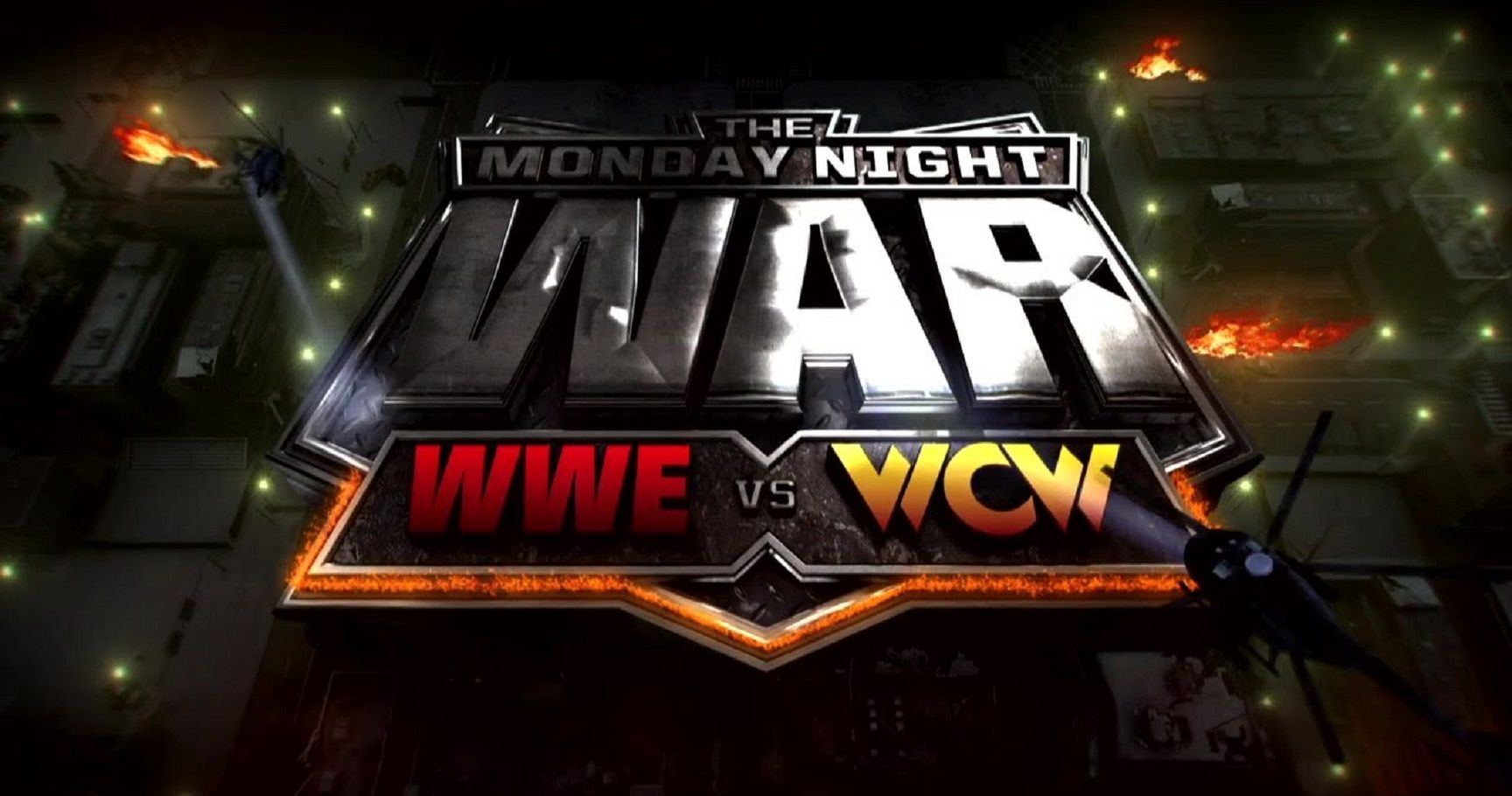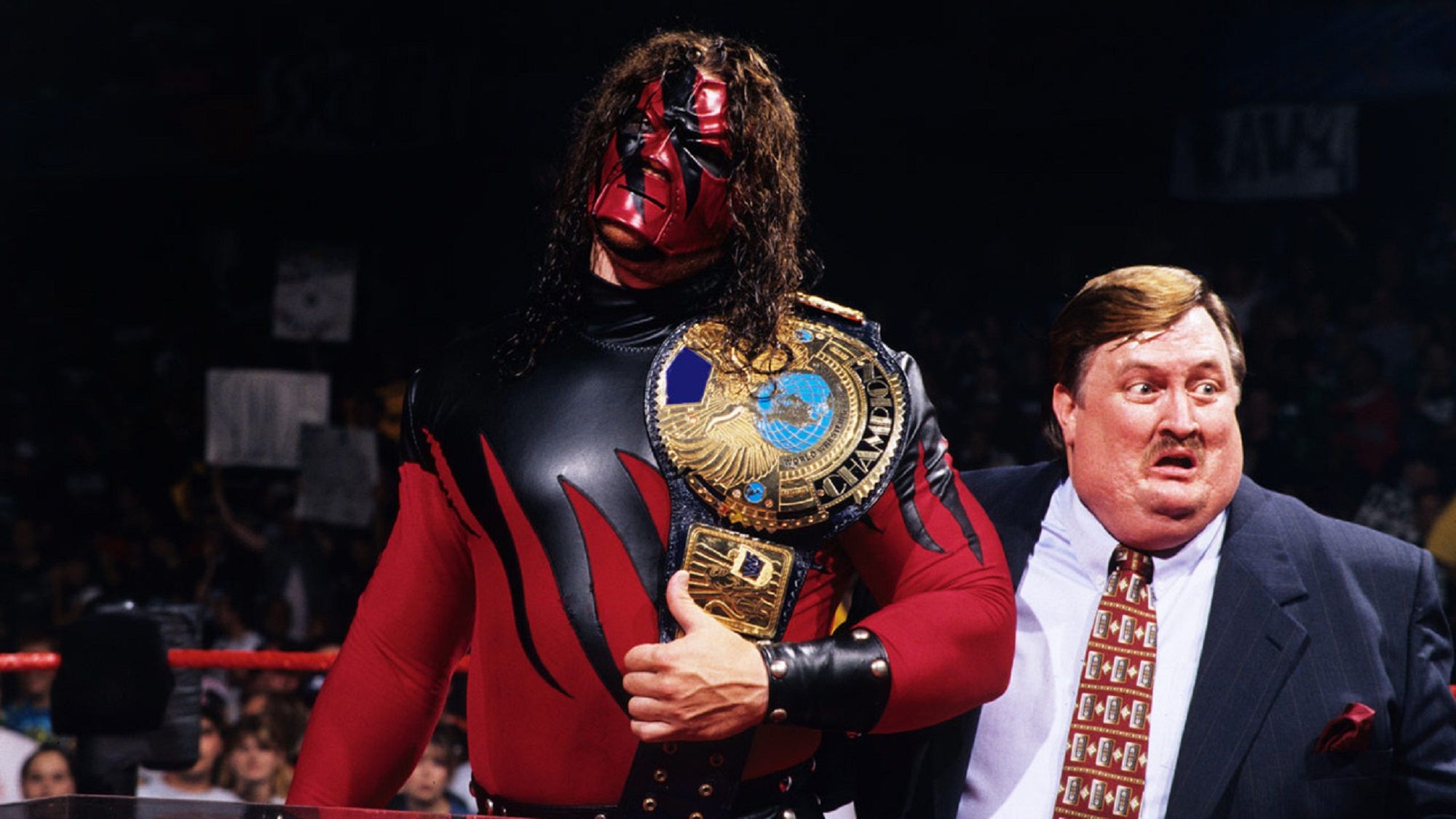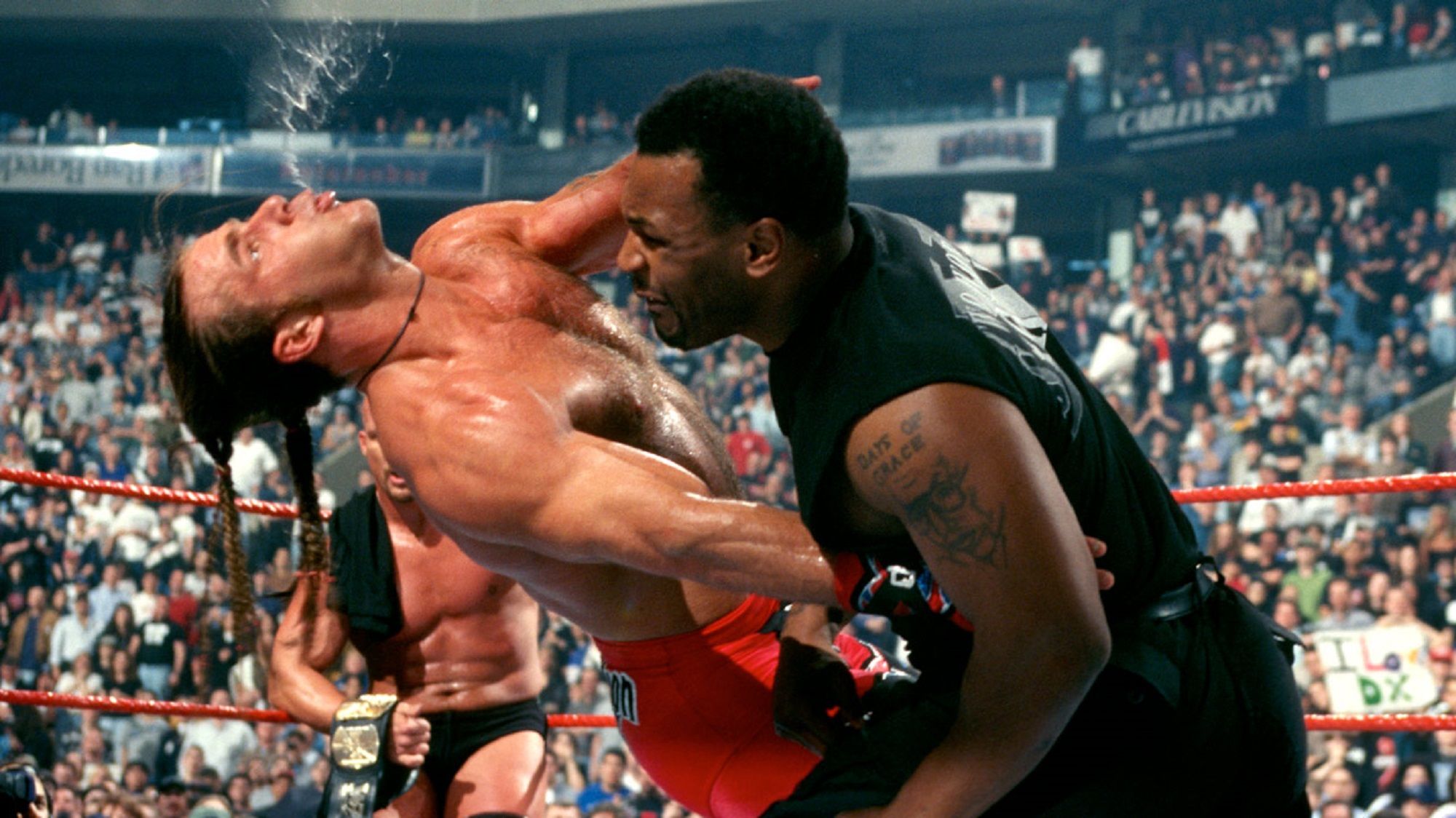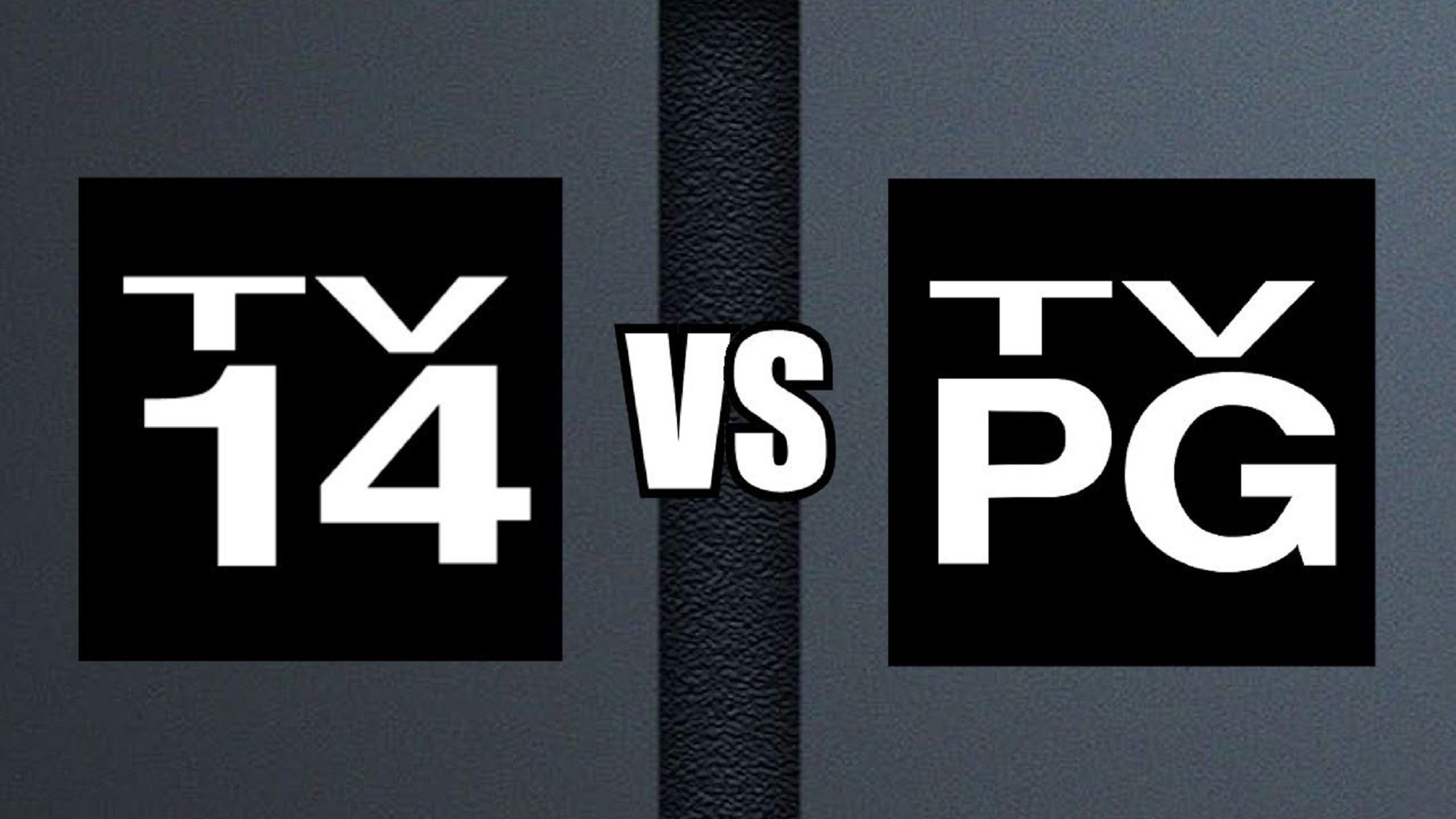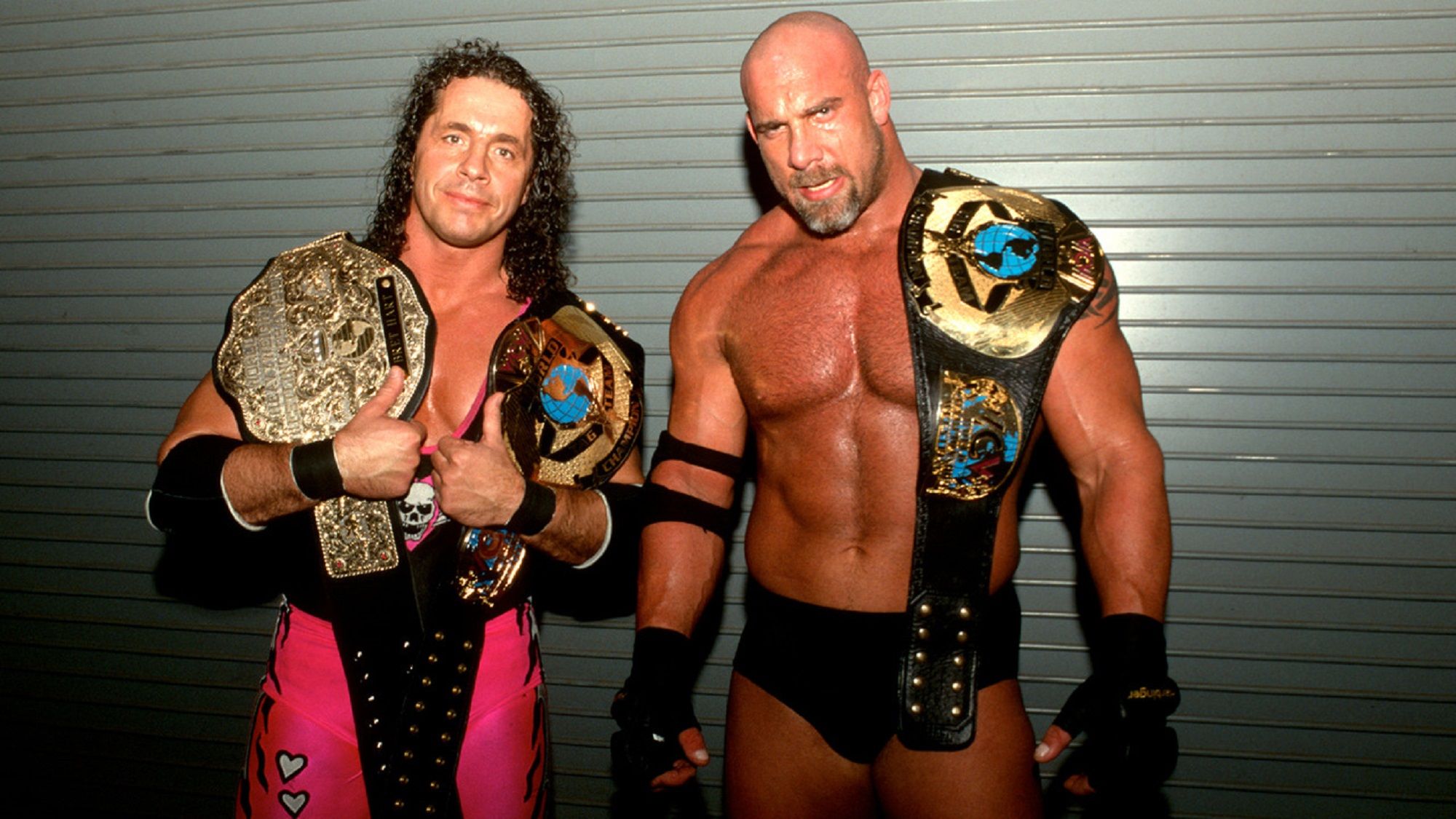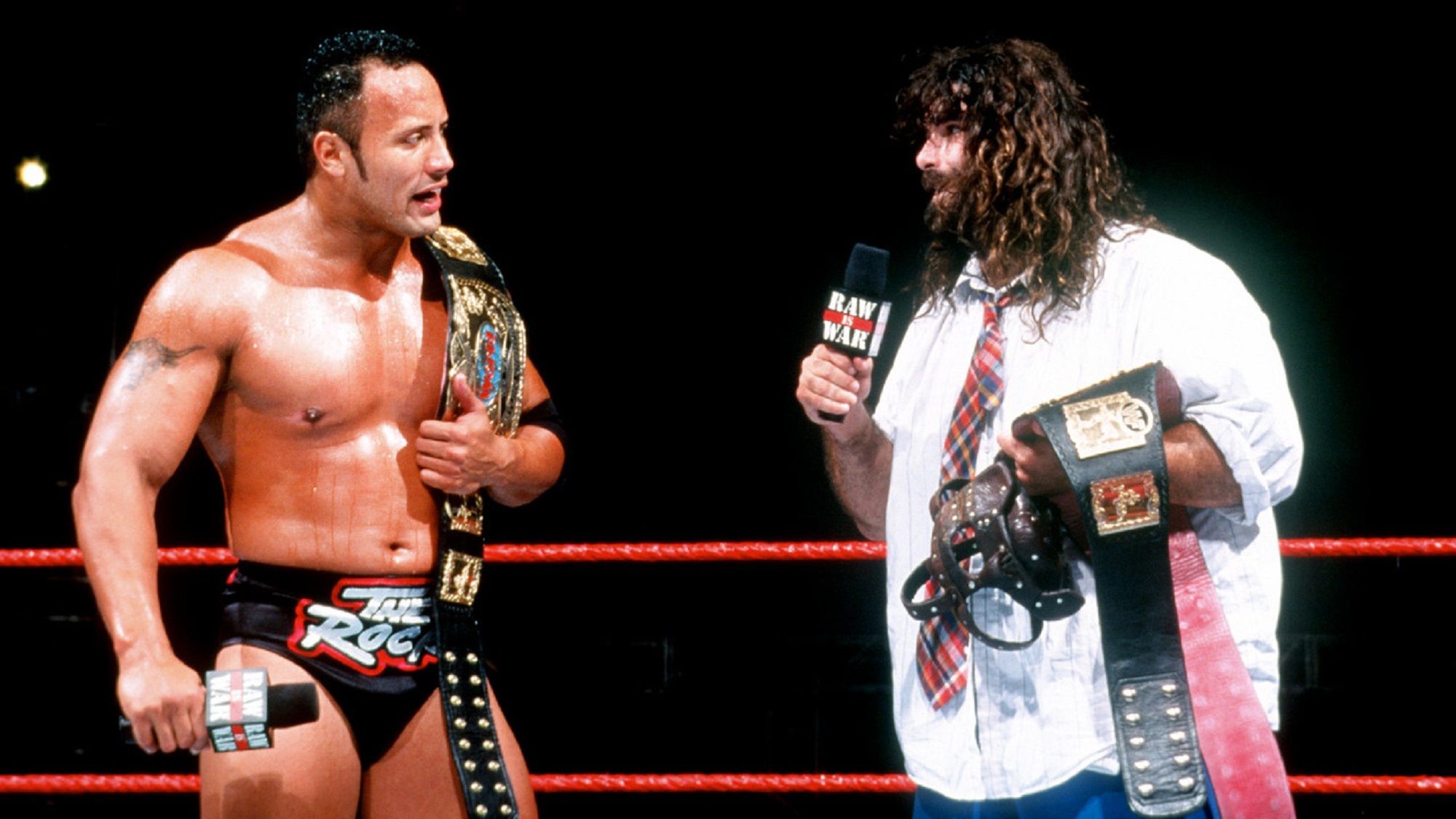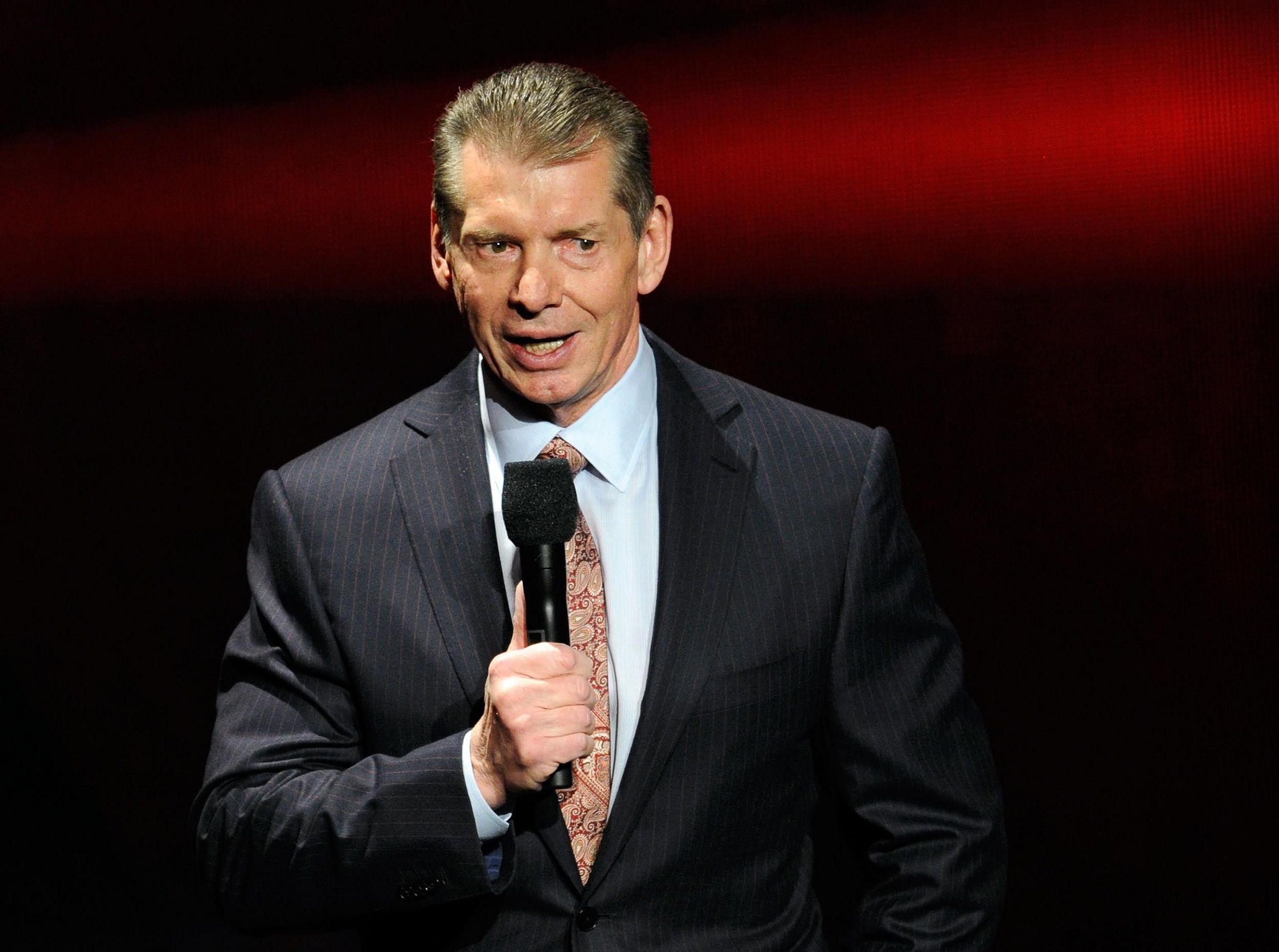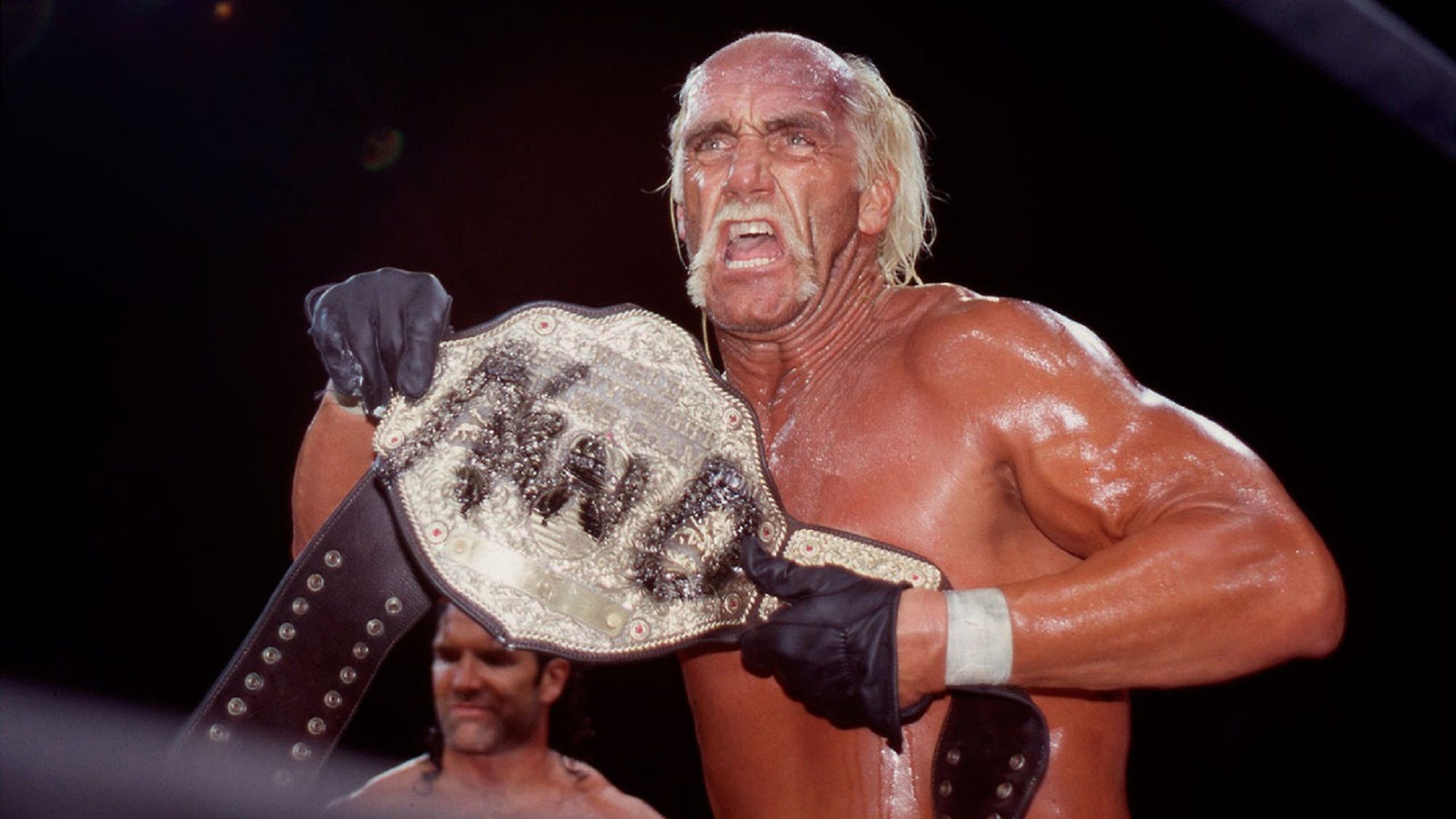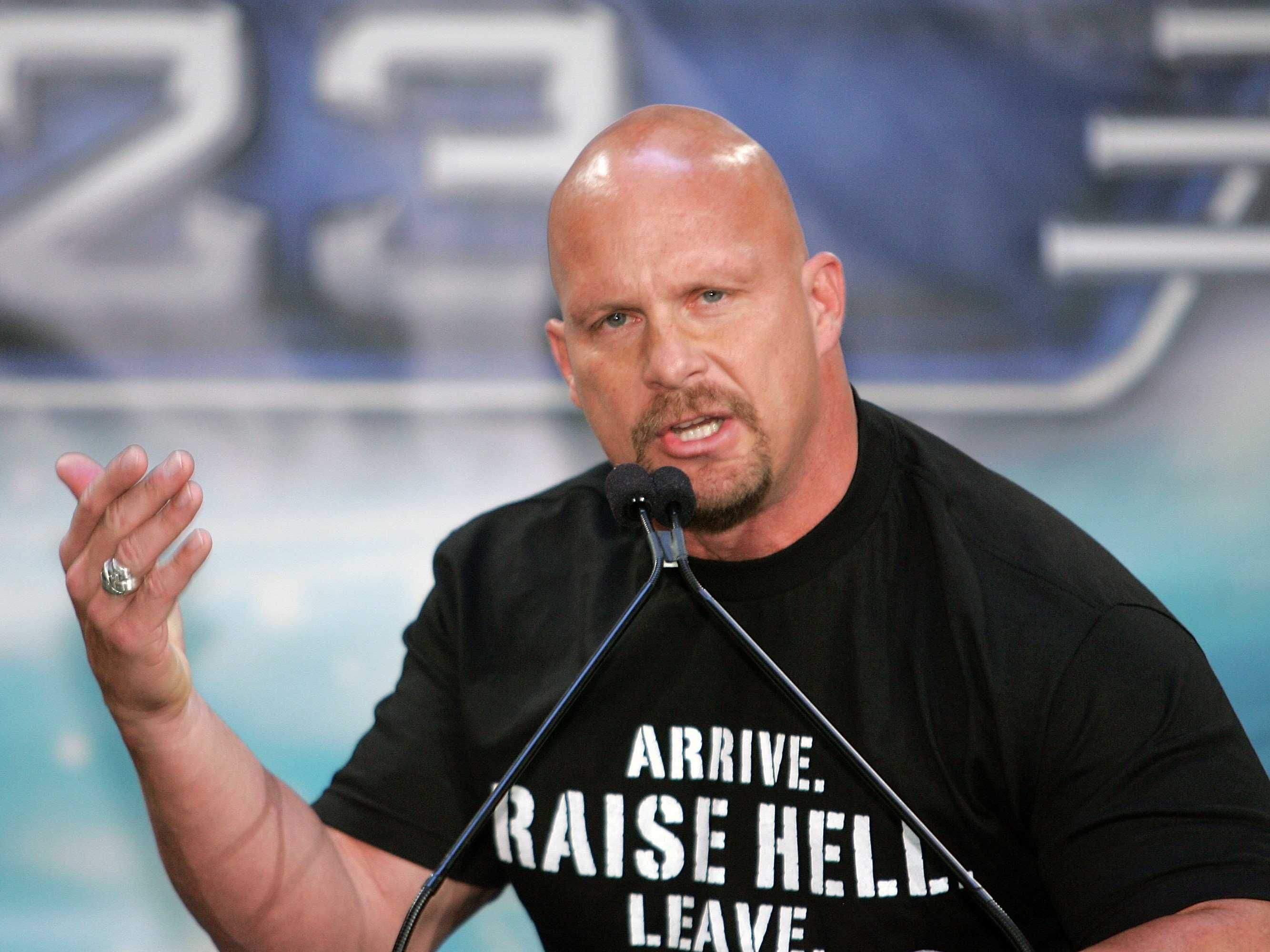These are indeed dark times for professional wrestling, dear readers. The WWE World Heavyweight Champion hasn’t been on television since September, Daniel Bryan has no return date set and there are not one, but two “animals” on the roster. While it may seem bad now, once upon a time in the late 90s and early 2000s, pro wrestling was THE thing in pop culture. Everywhere you would look wrestling would be associated to it in some capacity. The reason for this was the combined efforts of the two most successful wrestling promotions of all time: the World Wrestling Federation (Entertainment) and World Championship Wrestling.
Both these promotions battled for every inch of market space and every second of wrestling fans’ attention on Monday nights. From September 4, 1995 to March 26, 2001, the public had two prime time wrestling options, something that hasn’t occurred before or since. The product of both companies was ground-breaking for the industry... until WCW started to stink worse than Big Show on a cauliflower and beer diet.
The final nail in the coffin came when AOL bought out Time Warner, the Ted Turner-owned parent company of WCW, and the new chairman of Turner Broadcasting Systems, Jamie Kellner decided to cancel WCW on TBS and TNT. For about a measly $3 million, Vince McMahon bought WCW and ended the six-year war. While that may have been the death of WCW, the fact is that the company was deathly ill well before Kellner pulled the plug. World Championship Wrestling came amazingly close to shutting down the WWE empire but as quickly as they rose, they came crashing down in a hurry. There is no sole reason for this and this article will examine 10 reasons why the WWE won the Monday Night War.
10 10. Memorable Characters
Even if you are the greatest worker in the world, without a character it is very difficult to succeed at the highest level in pro wrestling (or sports entertainment, okay McMahon?). The WWE creative team knew this and as a result, we were treated to several midcarders who you actually cared about seeing. Who knows where superstars like Val Venis, the Godfather and Kane may have ended up if they were given another gimmick or worse yet, no gimmick at all. WCW's idea of memorable characters spawned such classics like a totally not Sub-Zero Glacier and the hump-loving Yeti. I think most people will take a scarred monster shooting fire out of ring posts over a toliet paper-covered turd every day.
9 9. Use of Women
For most of professional wrestling's history, women were relegated to valet roles and if they were placed in wrestling roles, they would be largely overlooked and not given a second thought. WWE bucked this trend in the Attitude Era by having women such as Sable, Chyna and Sunny in starring roles of storylines. Sable powerbombed Marc Mero, Chyna was more intimidating than half the male roster and Sunny essentially created the modern idea of a WWE Diva.
Throughout a combination of sex appeal and captivating personalities, WWE Divas were given much more opportunities to shine than any other group of women in wrestling history. WCW failed to realize this opportunity and did not attempt to create any female stars until 1999 when they signed names like Stacy Keibler and Torrie Wilson. At that point it was much too late to compete with WWE's crop of ladies and WCW's misuse of women's wrestling was another mistake on their lengthy list of errors.
8 8. Logical Use of Celebrities
As much as wrestling purists like their wrestling free of celebrities, professional wrestling is integral to pop culture so celebrities are bound to show up here and there. In the buildup to WrestleMania 14, Mike Tyson aligned himself with D-Generation X and brought the WWE loads of mainstream exposure due to his legendary notoriety. The use of Tyson remains the best use of a celebrity in WWE history. It wasn't quite a stretch to believe that Tyson could defend himself against professional wrestlers due to his boxing ability.
WCW on the other hand thought that the pudgy late night TV host Jay Leno could put Hulk Hogan in a wristlock. To their credit, WCW started off fine with putting basketball stars like Karl Malone and Dennis Rodman into matches but by the end of the Monday Night War, WCW had signed unknown rapper Snoll, a KISS demon and UFC washout Tank Abbott. Things got so bad that Bischoff at one point wanted to promote a PPV in Tempe, Arizona and have a three-hour KISS concert follow it. Note to WCW: just because you have stupidly deep pockets of money doesn't mean you have to stupidly waste large amounts of money on guys who can't draw a dime. Second note: the less said about David Arquette's title win the better.
7 7. Loose Restrictions
WWE's product today, to the chagrin of many fans, is PG. Whether you believe that is a good or bad thing is irrelevant here because what is true is that a TV-14 rating affords you more creative freedom than a PG rating. Bra and panties matches, use of blood or implied penis chopping (yes, really) were all on the table. Audiences, for the most part, ate it up and the WWE cornered the market of the key 18-34 male demographic. Due to WCW's conservative 'Standards and Practices', WCW's hands were tied when it came to producing mature content. It was so ridiculous that in the build up to Hulk Hogan versus Ric Flair at Uncensored 1999, the announcers weren't allowed to say the word "blood", which was kind of a part of the First Blood stipulation to the match. Pathetic.
6 6. Superior Presentation
Take a brief trip to Youtube and check out some of the video packages that WWE creates. Better yet, we'll include one here for your viewing pleasure. The quality of these hype videos can make even the worst of storylines look somewhat passable and can make great storylines appear immortal. WWE got the most out of their production facilities whereas WCW often made themselves look like fools due to their horrible editing. Look no further than WCW Thunder for proof of this. WCW treated it as a second class show, and it sure looked like it. WWE's production values were another reason WWE won the Monday Night War.
5 5. WCW's Waste of Bret Hart
In November 1997, there was no hotter commodity in pro wrestling than Bret Hart. After being screwed by Vince McMahon in front of his home country of Canada and thousands watching on PPV, Hart departed to WCW with loads of ammunition to stick one to McMahon for screwing him out of his World Championship. It would only take a highly uneducated group of idiots to screw this up... unfortunately for Hart, WCW met that criteria perfectly. Despite coming in with loads of momentum, Bret Hart's first action as a part of WCW was to referee a match between Eric Bischoff and Larry Zbyszko. Oh yes, the suspense is unreal! After that little number Bret Hart was treated as just another performer and not the legend that he is. A sad end to a legendary in-ring career.
4 4. Innovative Tag Teams
The Attitude Era, in addition to other feats, could possibly be considered the greatest time for tag team wrestling in WWE history. Unlike today when two superstars are thrown together simply because the company has nothing in mind for them, WWE's spontaneous teams during the Monday Night War were fantastic. The Rock 'n' Sock connection remains one of the most entertaining teams to this day due to the comedic chemistry between The Rock and Mick Foley.
More importantly though, the list of true tag teams in the Attitude Era was tremendous. The Hardy Boys, the Dudley Boys and Edge and Christian were all rising stars who competed in three, count em THREE, TLC/Ladder match masterpieces that have yet to be equaled. Pair those teams with the edgy antics of the New Age Outlaws and bar room brawling A.P.A and it's easy to see why WCW didn't have a prayer in competing with WWE's tag team division.
3 3. Leadership
When you go into war, you need a general who will steer the ship and guide you through the darkest hours. WWE's general was and remains to be Vince McMahon. McMahon is by no means a perfect leader, as many will point out, but he has tremendous experience and is not afraid of taking chances. WCW was helmed by Eric Bischoff, a man thrust into a position of creative power who had little experience promoting professional wrestling.
Bischoff came in largely as a marketing man rather than a wrestling guy, something that was made evident the longer his run went on. To his credit, Bischoff did strike gold with a few ideas such as the New Japan Pro Wrestling inspired nWo storyline and pushing Bill Goldberg, but by 1999 it seemed that he was out of ideas. Bischoff also allowed men like Hulk Hogan and Kevin Nash to wreak havoc with creative control and book themselves to the top of the cards forever. Not the kind of man you want leading you into battle. Things only got worse when Bischoff was sacked and replaced by Vince Russo, who despite what Russo might tell you, is not a wrestling genius. Management decisions like this were a big part in the fall of WCW.
2 2. Backstage Politics of WCW
In any sport, including scripted ones, you need to have all members of your team focused on the same goal in order to succeed. If everybody has each other's back, it gives your team that much more confidence. Several stories from former WCW officials and wrestlers point to the conclusion that everybody in WCW had their own agendas. Men like Hulk Hogan and Kevin Nash were given creative control over their storylines and in effect promoted themselves to the top of the cards week in and week out.
Potential box-office draws like Chris Jericho and Eddie Guerrero were seen as "Vanilla Midgets" in the eyes of those in power and were never given a chance to break the glass ceiling. Goldberg, who was undoubtedly WCW's top draw in 1998, lost his (kayfabe) 173 match winning streak and World Heavyweight Championship at Starrcade 1998 to none other than the head of the creative team Kevin Nash. Total coinkydink I guess? This hazardous work environment led to talent leaving the company and becoming legends in WWE, a giant blow to WCW and their war efforts.
1 1. Letting Icons Slip Away
Here's the big one. Even with all the other problems mentioned, WCW could have still been in business to this day if they averted this fatal mistake. When WCW signed names like Randy Savage, Hulk Hogan, Scott Hall and Kevin Nash, they bought guys who were established stars, but also guys who were on the back end of their careers. These men would prove valuable in the short term but WCW would need young guns to dethrone WWE for good.
Unfortunately for the company, WCW sealed their fate long before the war started. Here are four WWE Hall of Famers that WCW let slip away to WWE before Nitro debuted: Triple H, Mick Foley, The Undertaker and oh yes, Stone Cold Steve Austin. Those four men ended up becoming some of the biggest names the wrestling business has ever known, particularly Austin, who became the hottest star of the era and arguably in history. WCW thought they had nothing to offer. Ultimately, that is why WCW is no longer in business. WCW prepared for a skirmish, while WWE had the weapons for nuclear war.

